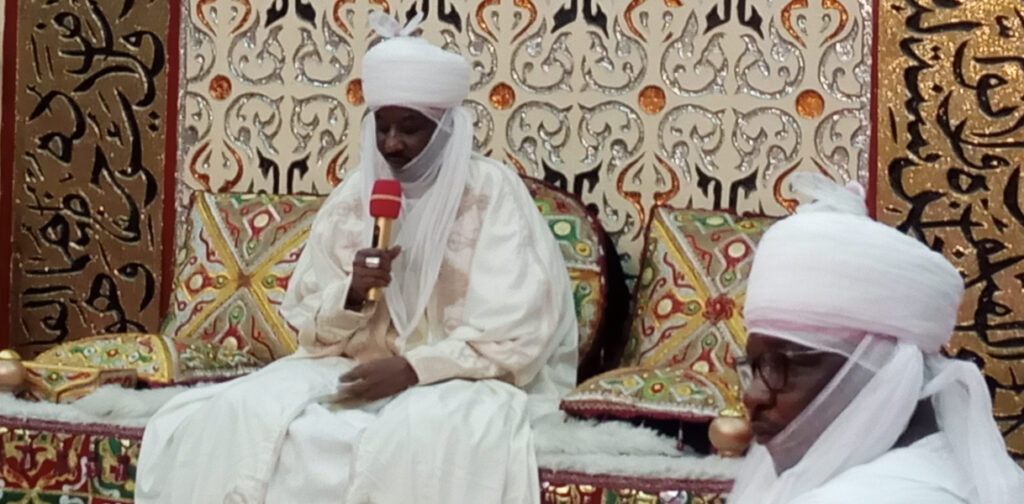The Emir of Kano, Muhammadu Sanusi II, has revealed that former President Goodluck Jonathan’s decision to suspend the removal of fuel subsidy in 2012 was driven more by fears of Boko Haram attacks than by public protests.
Sanusi, who was the Governor of the Central Bank of Nigeria (CBN) at the time, said the Jonathan administration had initially been resolute about ending the subsidy regime but backtracked after intelligence reports warned of possible suicide bombings targeting protesters.
Speaking at the Oxford Global Think Tank Leadership Conference themed “Better Leader for a Better Nigeria” on Tuesday, Sanusi disclosed that the government’s greatest concern was not political backlash, but the potential loss of lives if terrorists infiltrated mass demonstrations.
“If one day one of these suicide bombers had gone to the protesters and exploded a bomb, killing 200 people, it would no longer have been about subsidy,” the Emir said.
“President Jonathan was determined to do it, but the government decided to compromise by removing only 50 percent instead of 100 percent because of Boko Haram.”
Sanusi explained that what Nigeria referred to as a “fuel subsidy” was, in reality, a “naked hedge” — a financial arrangement that left the country dangerously exposed to fluctuating oil prices, exchange rates, and interest rates.
According to him, the Federal Government’s insistence on maintaining artificially low fuel prices forced the country into a financial trap.
“We moved from using revenues to pay subsidies, to borrowing money to pay subsidies, and then borrowing again to pay the interest on those loans,” he said.
“At that point, the country had become bankrupt. Anyone who takes a naked hedge ends up bankrupt, especially when you don’t control the price of the commodity.”
The Emir argued that Nigeria’s current economic hardship could have been less severe if the subsidy had been fully removed more than a decade ago.
“If Nigerians had allowed the Jonathan government to remove the subsidy in 2011, there would have been pain,” he noted. “But that pain would have been a very tiny fraction of what we are facing today. This is the cost of delay.”
Sanusi recalled that as CBN governor, he had assured that inflation would only rise slightly — from 11 to 13 percent — after subsidy removal, and would later stabilise.
The Emir also used the platform to express disappointment in the country’s political class, lamenting what he described as a moral and intellectual decline among leaders who ought to know better.
> “By the time you become a governor, you should be beyond looking for money,” he said. “But many of our leaders live like illiterates despite their education.”
Sanusi’s remarks revisit one of the most controversial policy debates in Nigeria’s recent history — the 2012 fuel subsidy removal attempt that sparked nationwide protests under the #OccupyNigeria movement.
While the public at the time believed mass resistance had forced Jonathan to reverse the policy, Sanusi’s revelation suggests that security fears, not political pressure, played the decisive role.
Do you want to share a story with us? Do you want to advertise with us? Do you need publicity for a product, service, or event? Contact us on WhatsApp +2348183319097 Email: platformtimes@gmail.com
We are committed to impactful investigative journalism for human interest and social justice. Your donation will help us tell more stories. Kindly donate any amount HERE




